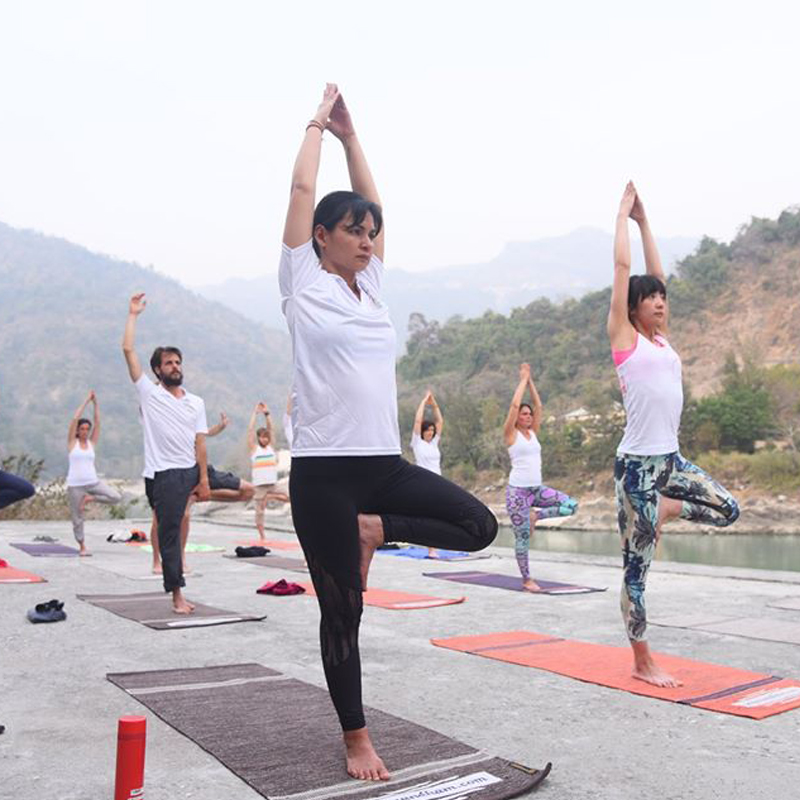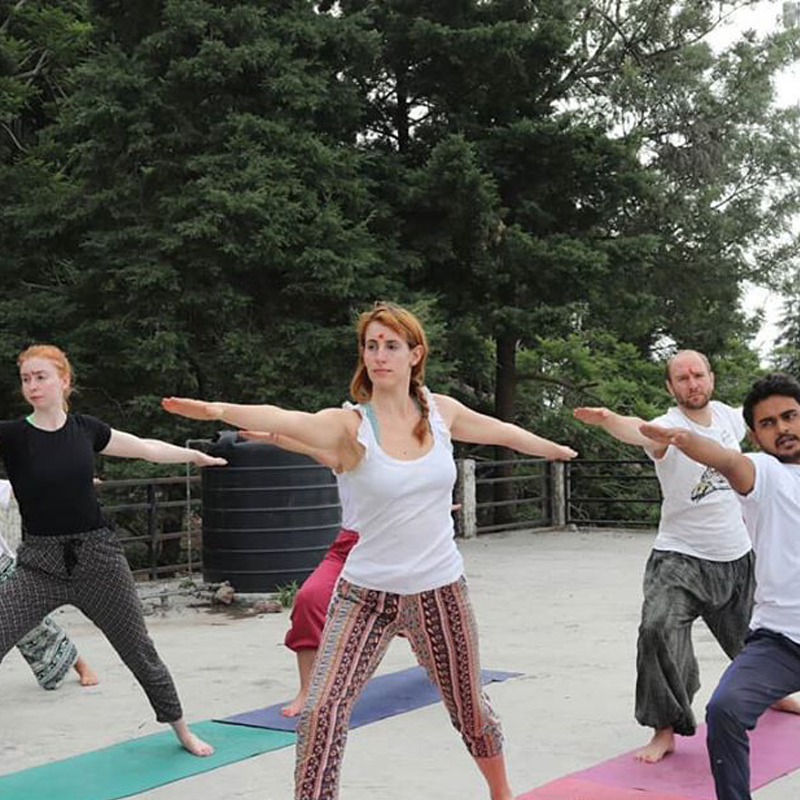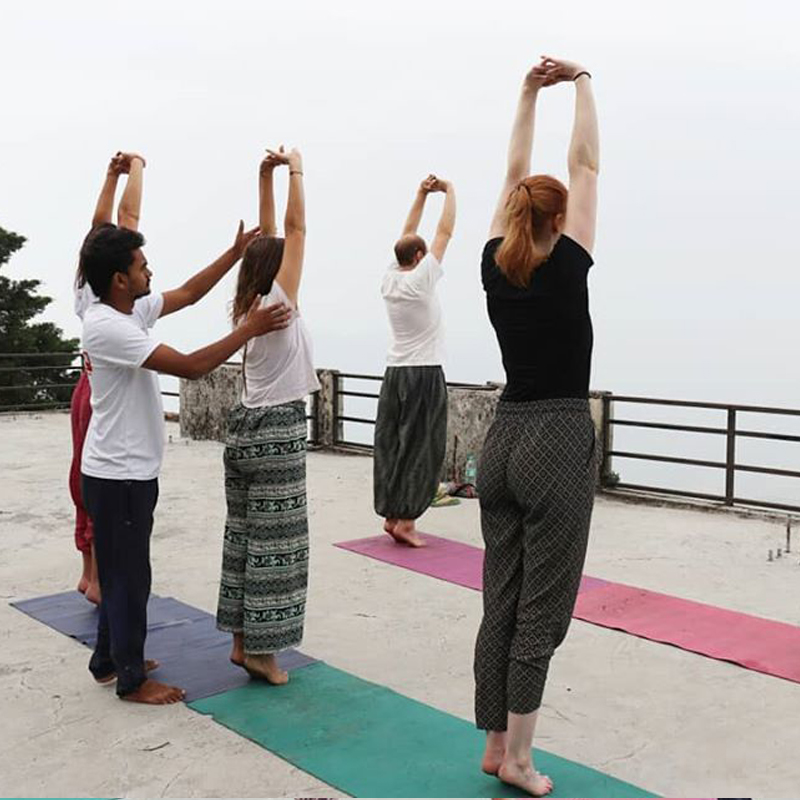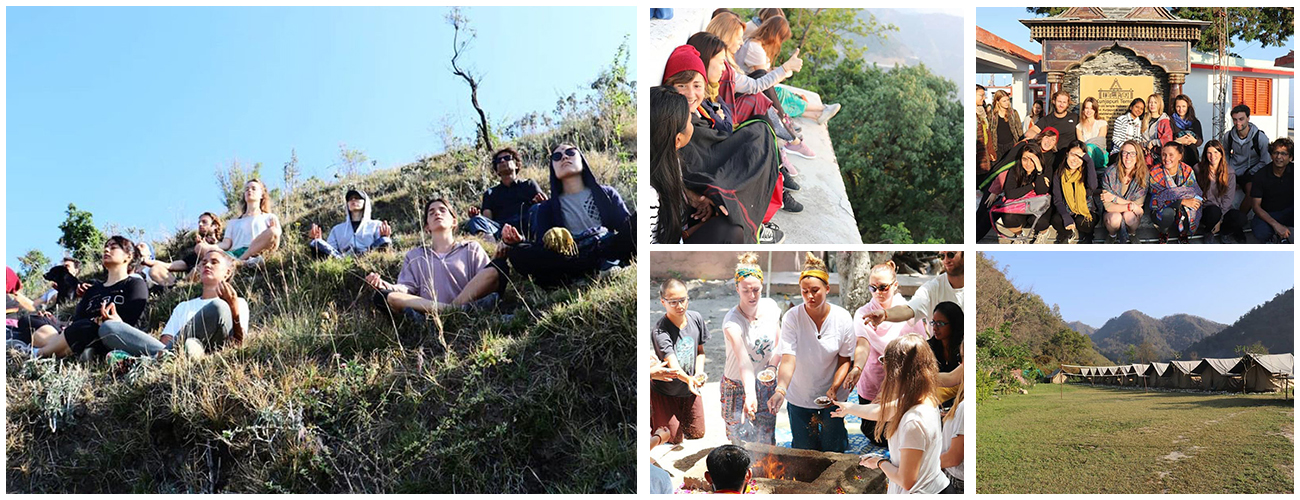
200 Hour Yoga Teacher Training In Rishikesh ( Hatha Yoga Training)
Overview - 200 Hour Yoga Teacher Training In Rishikesh ( Hatha Yoga Training)
Don't miss this wonderful opportunity to learn ancient techniques and modern practices that will completely & positively change your life by bringing forth tremendous support to the system. Conducted by trained Yoga Teachers or Yog Gurus, this course will cover yogic concepts and their applications in day-to-day life. Whether you are interested to give a kick for your teaching career or are willing to have a personal development in yoga practices, this course is the best option for you.
Have any question?
No money will be charged, feel free to enquire.
Images Gallery
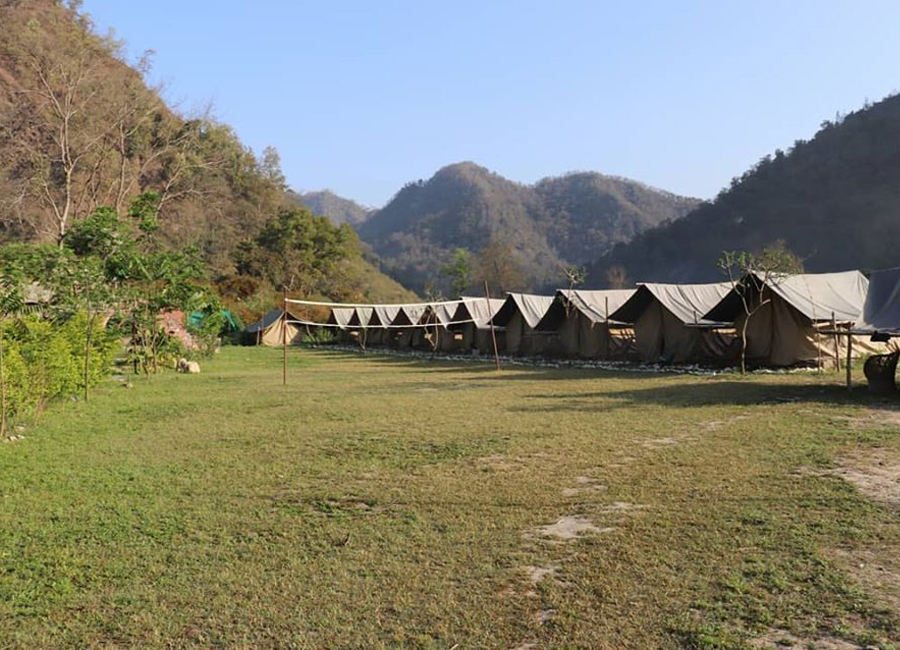

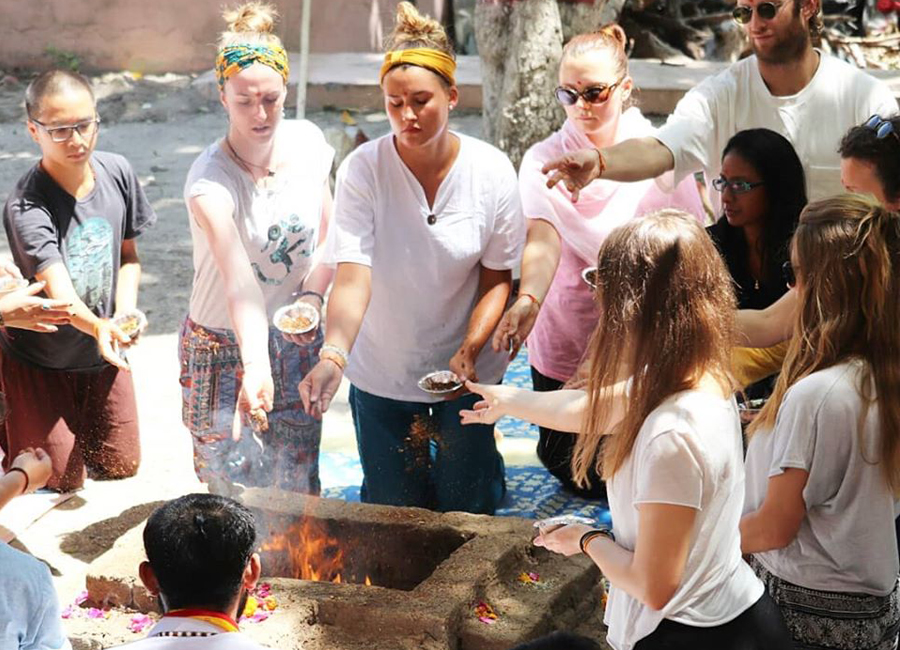
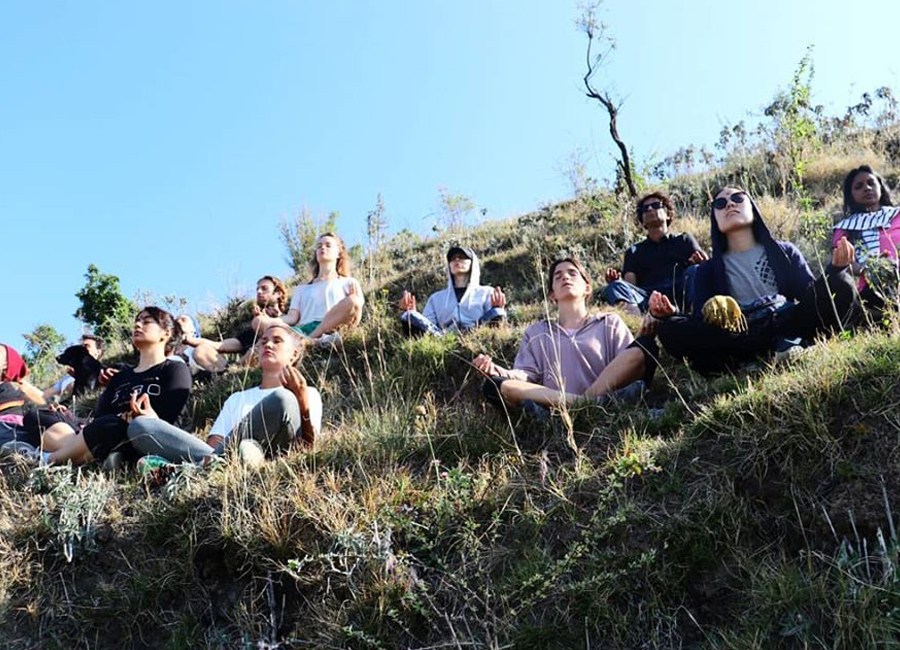
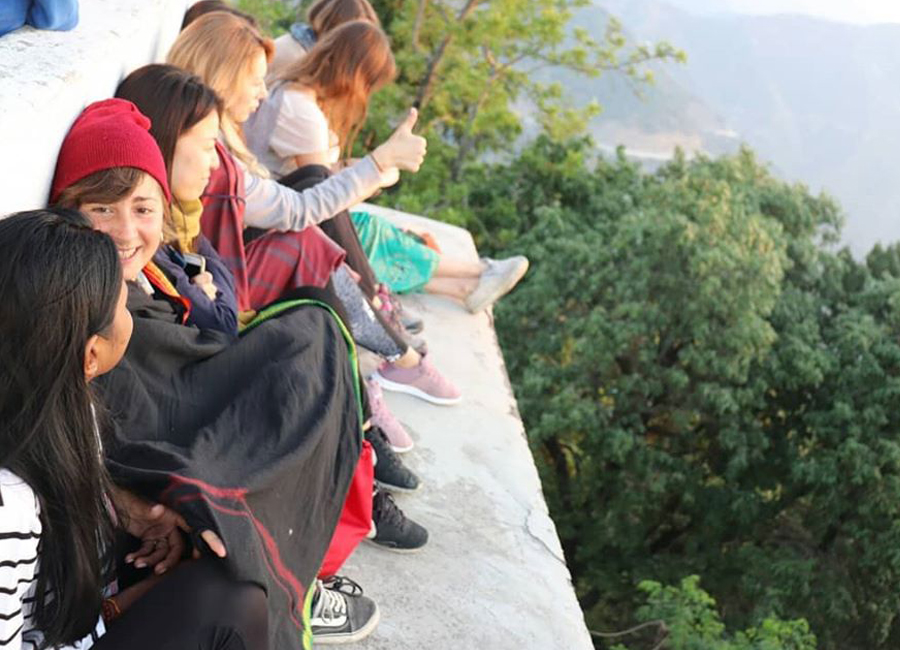
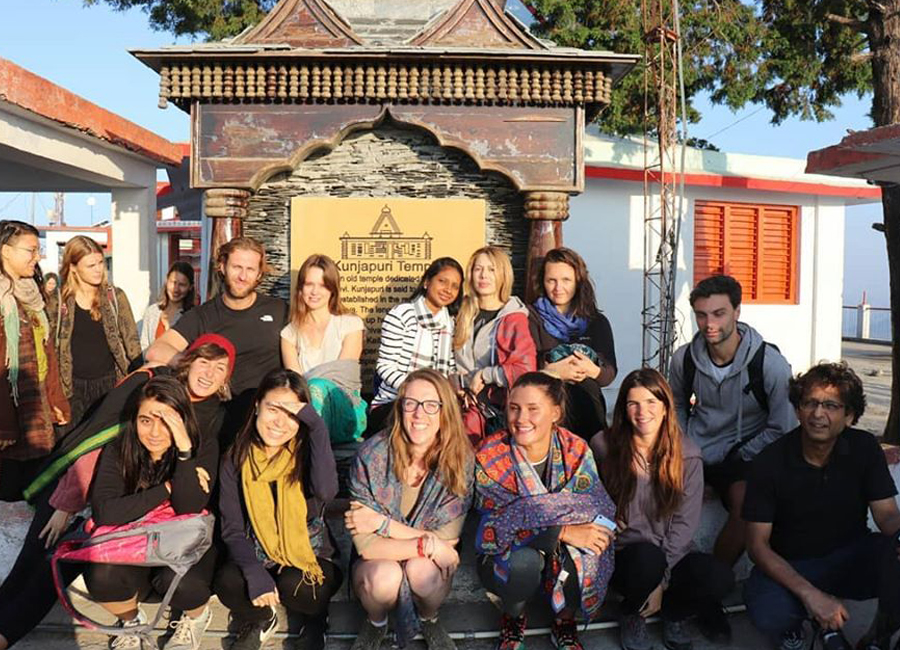
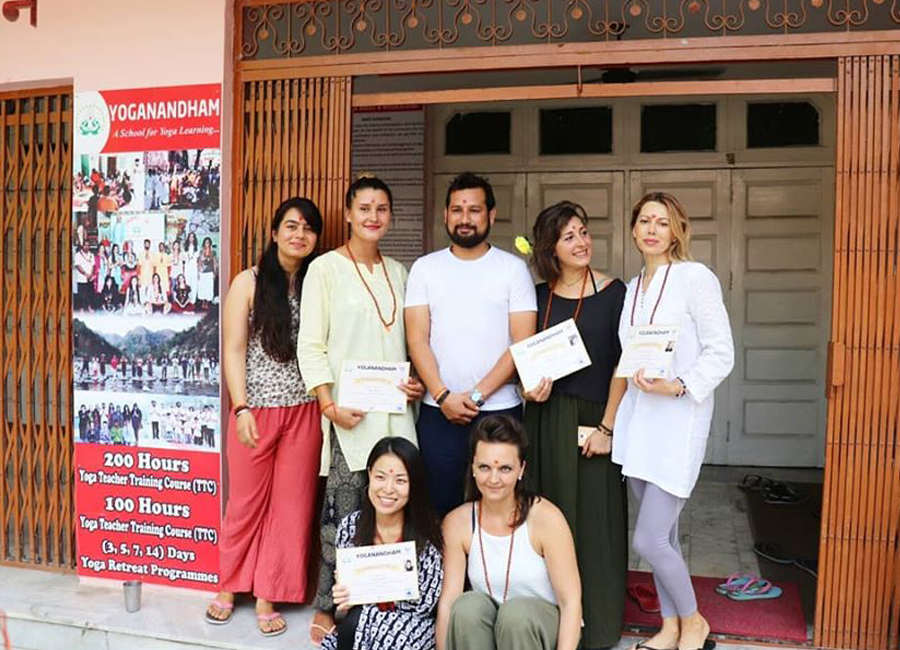
Program
Escape from the pressures of modern life & Embrace the path of yoga with the amazing combination of Indian beauty and tradition in "Yoga in Rishikesh". Our 21-days yoga course is designed to learn and practice yoga to deepen your yogic knowledge which you gain through the beginners' yoga course.
These 21 days will surely take you to the journey of happiness, peace and enhanced health. The journey is not only physical but spiritual as well. After this yoga
1. About Food: Vegetarian and Vegan
2. Group size: We take only 10-12 students in 1 batch
3. Level: Beginner to advanced
4. Outdoor Activities: Spiritual Tour
Food & Accommodation
The ashram provides neat and clean rooms with attached washrooms. The rooms have proper ventilation and 24- hour power backup facilities. The ashram itself is located in a peaceful location away from the city which makes it a perfect location to practice yoga and meditation in peace.
Breakfast
Yoga school provide nourishing and balanced breakfast every day. Breakfast prepared in our kitchen is nutritious, tasty, balanced and prepared from fresh nuts, vegetables, fruits and grains. During your stay with us, you would have an opportunity to taste traditional Indian breakfast, such as different kinds of porridges, Idli (savoury cake), Poha (made from beaten rice), Upma (wheat rava (semolina) or coarse rice flour dish), Sprout salads, and many more. In case you are on vegan diet, we can prepare breakfast separately for you upon request.
Lunch
Food served at lunch is pure vegetarian, sattvik, vitalizing, wholesome and nutritious. The food prepared in our kitchen includes most vegetables, ghee (clarified butter), fruits, legumes, and whole grains. These are ingredients that enhance clarity and lightness, keeping the body light and nourished and the mind clear. Time to time during the course we change the nature of the food according to the yoga practices you perform.
Dinner is also served
Syllabus
Asanas (Postures):
Student will learn many postures of text Hatha Yoga Pradipika and Gherand Samhita.
Study various asanas and the technique of teaching the postures, the benefits of each posture, contraindications, and the use of props according to various aspects according to the Traditional Vedic texts of Hatha Yoga.
1. Sukshm Vyayam (Joints movements)
2. Surya Namaskar (Sun Salutation)
3. Standing poses.
4. Sitting poses, forward bends, and hip openers.
5. Sitting/spine twists.
6. Backbends.
7. Arm balances.
8. Restorative postures.
9. Proper use of Props for Aanas.
10. Standing Poses.
Adjustment:
Learn how to adjust these asanas and understand how adjustment can deepen your practice.
Pranayama (Breathing Techniques):
These are based on traditional yogic breathing techniques which will benefit your yoga practice as you learn how to lengthen your breath. How to incorporate breathing into postures and into your classes. How breathwork assists the body.
- Sheetali & Sheetkari Pranayama
- Bhastrika & BHRAMARI Pranayama
- Anulom-Vilom Pranayam
- Suryabhedi & Ujjayi Pranayam
Shatkarma (Cleansing Techniques):
These yogic cleansing practices will be integrated into the daily morning schedule and will work in conjunction with the asana practices. These will purify the nervous system and allow your breath to flow freely throughout the body. In expelling toxins from the body, we therefore cleanse it.
- Agnisar Kriya
- Kapalbhati
- Sutraneti
- Jalneti
- Kunjal
- Tratak
Yogic Mudras (Energy Seals):
Stimulate different parts of the body by sealing in the energy. These are usually used in Pranayama and affect the flow of prana.
- Shambhavi Mudra
- Tadagi Mudra
- Shanmukhi Mudra
- Kaki Mudra
Bandhas (Energy Locks):
How they regulate the flow of energy and assists the practitioner in asana.
- Jalandhar Bandh
- Uddiyan Bandh
- Mool Bandh
- Maha Bandh
Meditation:
You will cover a range of meditation techniques that will help build concentration and focus in your daily practice. Techniques include Om Chanting, Chakra, candlelight Meditation.
Mantras (Chanting):
A range of mantras will be taught including the Gayatri Mantra Mrityunjay mantra and many more. Find your inner harmony in these sessions.
Recommended Books: By Swami Nityananda Saraswati
Asana Pranayama Mudra Bandha: Bihar School of Yoga Hatha Yoga Pradipika by Swami Muktibodhananda. Gherand Samhita By Swami Niranjananand Saraswati.
Teaching Methodology:
This class will give you the necessary building blocks to devise your own yoga class. Learn how to motivate your students by teaching inclusively to the range of abilities that you may be faced with.
Adjustment:
- Learn how to help your students get deeper into a posture through adjustment.
- Studying yoga lifestyle and the ethics of a yoga teacher.
- Studying the attitude and presence of the teacher.
- The seat of yoga teacher/teaching as service/why we teach/creating a sacred space.
- Elements of great teaching.
- Classroom organization and set up.
- Creating a class plan.
- Teaching progressively focusing on alignment principles.
- The basic principles of sequencing.
Introduction to Yogic Anatomy
Structure of main organs (Heart, Lungs, Stomach, Liver & Kidney) Students will learn anatomy relevant to yoga in order to strengthen the classroom explanations, cues, and corrections of asanas. Yoga and Skeletal System, Brain & Nervous System, Respiratory System, Digestive System, Cardiovascular System. Effects of kriya, Pranayama, Asanas and Meditation for various disorders.
Subtle Body Anatomy of the chakras, nadis and the application of chakras energy in the practice of Yoga. Recommended Books: Anatomy of Hatha Yoga (David Coulter)
Introduction to Yoga
Definition of Yoga, History of yoga INTRODUCTION OF YOGIC TEXT
1. Hath Pradeepika.
2. Gherand Samhita.
This topic will focus on introducing you to the basic philosophy, concepts and history of yoga. It will cover the various traditional philosophies and viewpoints, insights from modern research and ways in which the essence of this holistic life-view can be integrated into a modern lifestyle.
a) Yoga Sutras (Preface of Patanjali’s Yoga Sutra): Study this important text based on the 8 limbs of Ashtanga Yoga. Discover the theory and foundations of yoga as Patanjali describes how to make a connection with the body, mind and spirit.
b) Kriya Yoga a methodology to overcome Panch-klesha (5 causes of pain and miseries)
c) Raj yoga and Hatha yoga
Ethical guidelines for the student-teacher relationship, How to behave as a Student and how to behave as a Teacher. Communication, limits between Teacher and student. Recommended Books: Patanjali Yog Sutra,Hatha Yog Pradipika, Gherand Samhita.
Practicing teaching with RYT/ERYT.
Group teaching during class hours.Class Observation: You will observe a Class given by one of our experienced yoga teachers as inspiration for the class that you will then prepare.
Peer Teaching:
These sessions allow you to practice your teaching skills and get constructive feedback from both your Senior Teachers and your peers on your progress. Lead Trainer expand at least 5 to 10 hours with all student in this topic during their practicing as a teacher.
Daily Schedule
06:00 AM - 07:00 AM - Meditation
07:00 AM - 08:00 AM - Hatha Yoga Course
08:00 AM - 08:30 AM - Shat-Karma
08:30 AM - 09:30 AM - Breakfast Time
10:00 AM - 11:00 AM - Yoga Philosophy
11:00 AM - 12:00 PM - Yoga Therapy/Adjustment & Alignment
12:00 PM - 01:00 PM - Stretching Class
01:00 PM - 02:00 PM - Lunch Time
03:00 PM - 04:00 PM - Yoga Anatomy/ Ayurveda
04:15 PM - 05:30 PM - Hatha Yoga Class
05:30 PM - 06:15 PM - Pranayama
08:00 PM - 09:00 PM - Dinner Time
Duration of daily yoga classes can be increased if required.
Daily schedule is subject to change depending on weather conditions.
What’s Included
- 1 complimentary Ayurvedic massage
- accommodation (on single/sharing basis)
- Three meals and herbal infusions
- Guided Excursions
- Teaching supplements
What’s Not Included
- Airfare
- Personal Expenses
How to Get There
By Plane
The nearest International Airport from Rishikesh is the Indira Gandhi International Airport, New Delhi. Upon landing at the airport, you can avail a direct cab to the school. Alternatively, you can also ask the school to arrange a pick-up.
By Train
The nearest railway station is in Haridwar (Uttrakhand). You can book a direct train to this town. Upon reaching the station, you can either avail a cab for the ashram or, ask the ashram to arrange a pick-up.
By Bus
There are ample numbers of direct bus routes from various cities in the Northern part of India to Rishikesh. Upon reaching the bus stand in Rishikesh, you can take a rickshaw to the school. Alternatively, you can ask the school to arrange a pick-up.
Cancellation Policy
The reservation requires a payment of 20% of the total price.
- If the booking is cancelled one month (31 Days) prior to the start of the retreat/course you will get 90% refund of the booking amount.
- If the booking is cancelled 30 to 15 Days prior to the start of retreat/course, you will get 50% refund of the booking amount.
- No refund will be given if the retreat/course booking is cancelled less than 15 days prior to the start of the course. Although we can adjust the 50% of your paid amount to any other retreat/course you book with us in future.
The remaining amount shall be paid on arrival to the course/retreat location.
Teachers & Staff
Organizer


